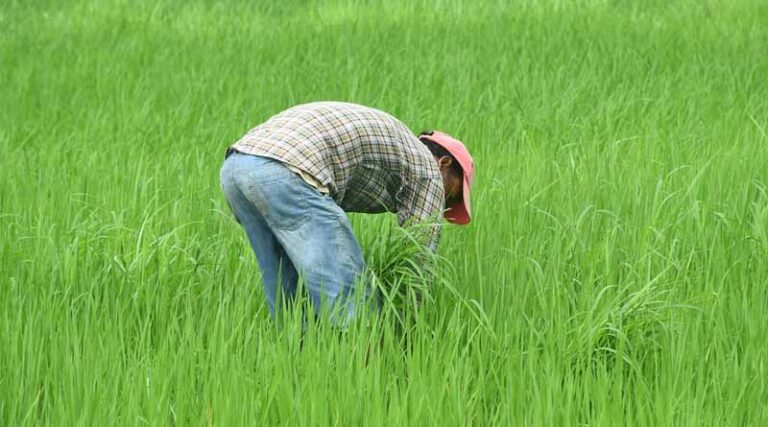
Herbicide Misuse Derails Moong Procurement in Madhya Pradesh: Time for Industry to Reinforce Product Stewardship
Government cites herbicide misuse; agrochemical sector urged to enhance knowledge transfer and promote label-compliant usage
06 June 2025, New Delhi: The Madhya Pradesh government’s recent decision to withdraw from moong procurement under the Minimum Support Price (MSP) regime has triggered serious concerns within the agrochemical industry. While the state has attributed the halt to quality concerns stemming from herbicide usage, the development brings into focus a critical issue often overlooked — the gap in effective product stewardship and knowledge transfer to farmers on correct agrochemical usage.
Government Attributes Quality Loss to Herbicide Misuse
Responding to a question from Krishak Jagat after a press conference, Ashok Barnwal, Additional Chief Secretary and Agriculture Production Commissioner of Madhya Pradesh, confirmed that the state would not be sending a proposal to the central government for procurement of moong this year. He stated that widespread use of herbicides like glyphosate and paraquat during the harvesting period compromises the quality of the crop, making it unsuitable for government procurement under existing norms.
This decision, though administrative in nature, carries deeper implications for the agrochemical industry. It raises questions about the adequacy of current efforts in educating farmers on label compliance, pre-harvest intervals, approved crop usage, and correct application timing. The issue of chemical residue in pulses, especially when applied close to harvest, has been flagged by regulatory bodies and procurement agencies alike. The industry’s current stewardship efforts, while present in principle, may need significant strengthening to prevent such policy outcomes.
Field Realities vs Regulatory Expectations
The use of herbicides in moong farming has become increasingly common, particularly to enable timely mechanical harvesting. Farmers often face tight timelines with Kharif sowing following closely after moong harvest. In conversation with Krishak Jagat, Sharad Verma, a moong farmer from Narmadapuram, explained that chemicals such as glyphosate or paraquat are used to dry out the crop’s foliage once the beans are mature. This is typically done three days before harvesting to avoid green leaves jamming the harvester machinery and to ensure quick land turnaround before the onset of pre-monsoon showers.
While the agronomic rationale is understandable, the lack of structured guidance on the safe usage of these herbicides is now becoming a point of conflict between agricultural practices and procurement norms. In most cases, farmers are unaware of label-stated pre-harvest intervals or assume that desiccation chemicals are universally applicable across crops. This disconnect is particularly visible in pulses, which are more sensitive in terms of residue thresholds and procurement quality standards.
Time for the Industry to Act Beyond Distribution
The agrochemical sector is now being called upon to revisit its role beyond supply and sales. There is a growing expectation from both regulators and the farming community that companies must take a more proactive role in educating end-users about label claims, waiting periods, dosage limits, and application techniques. While many leading companies do run stewardship campaigns, the implementation on the ground often varies from district to district. This uneven reach results in practices that may be locally justified but are misaligned with national food safety standards.
Industry insiders agree that the focus now must shift from generic training modules to more field-specific, vernacular education that simplifies label instructions and builds awareness of residue regulations. There is also a growing need to empower last-mile input dealers, who are often the first point of contact for farmers. Their knowledge and communication can play a vital role in ensuring that product usage remains within regulatory and agronomic limits.
A Wake-up Call for Collaborative Compliance
The Madhya Pradesh procurement ban serves as a timely reminder that product stewardship is not merely a compliance requirement but a shared responsibility across the agricultural ecosystem. With more states expected to scrutinize procurement-linked quality issues, it is evident that agrochemical companies must align their outreach and extension strategies with on-ground realities. The credibility and sustainability of the sector increasingly depend on its ability to ensure responsible usage of products and to actively bridge the knowledge gap at the farm level.
Also Read: Madhya Pradesh Farmers Await State Government’s Nod for Moong Procurement at MSP
📢 Reach Farmers, Share Your Story, and Grow Your Brand!
Got news to share? A company story to highlight? Looking to launch an impactful advertising campaign? Connect with us at info@krishakjagat.org or nimishgangrade@krishakjagat.org and make your mark!
📢 Connect with 100+ Million Farmers! India’s leading farmers rely on Krishak Jagat’s Hindi website for trusted agriculture news, advisory and insights. Click here to explore!






